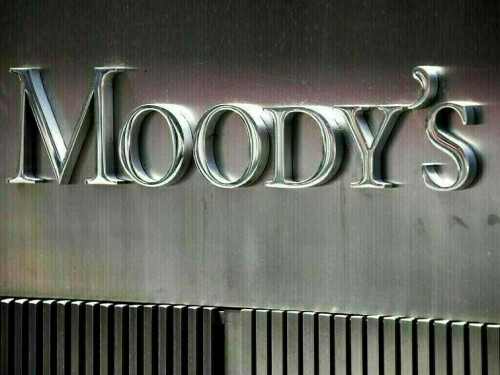Finance Minister Presents Economic Progress to Moody’s
In a significant meeting held on Tuesday, Finance Minister Muhammad Aurangzeb presented Moody’s Ratings with compelling data showcasing Pakistan’s economic resurgence and the impetus of ongoing reforms.
Accompanied by key officials, including Minister of State for Finance Bilal Azhar Kayani, State Bank of Pakistan (SBP) Governor Jameel Ahmed, and senior ministry representatives, Aurangzeb underscored the nation’s advancements in economic stabilization. These achievements encompass a considerable decrease in inflation, a reduction in the policy rate, a stable exchange rate, a current account surplus, and a notable increase in foreign exchange reserves, exceeding $14 billion by June’s end.
According to a statement from the Finance Division, improvements in remittance inflows and enhanced export performance were also emphasized as indicators of the country’s resilience and heightened investor confidence.
During the detailed session, the finance minister briefed the Moody’s team on the substantial progress Pakistan has achieved in stabilizing its economic condition and establishing a base for sustainable and inclusive expansion.
Key Highlights Discussed
- Successful completion of the final IMF review under the Stand-By Arrangement.
- Disbursement of the second tranche and progress under the Resilience and Sustainability Facility (RSF).
- Structural reforms to anchor long-term stability, including fiscal measures in the recent budget.
- Tariff and trade liberalization aimed at export-oriented growth.
- Efforts to rationalize expenditure.
The ongoing dialogues with the United States concerning preferential tariff access were also highlighted as demonstrating encouraging advancement.
The session further detailed Pakistan’s renewed engagement with global financial markets, including a successful arrangement of $1 billion in commercial financing from the Middle East, strategies for an inaugural Panda bond, and Pakistan’s intention to explore Eurobond and other international debt markets as credit ratings improve.
Tax Revenue and Reform
Moody’s team received a comprehensive overview of Pakistan’s reform initiatives, with particular focus on enhancing the tax-to-GDP ratio through technology-driven tax administration reforms, system digitization, and rigorous enforcement.
Aurangzeb emphasized the government’s dedication to broadening the tax base, addressing leakages, and improving compliance. He pointed out that the Rs2 trillion revenue surplus achieved this year was due to independent initiatives, and the government is dedicated to reaching a tax-to-GDP target of 13 to 13.5% within the coming years.
The finance minister also responded to inquiries from the Moody’s team and reaffirmed Pakistan’s commitment to maintaining macroeconomic reforms, including privatization, state-owned enterprises (SOEs) restructuring, and government right-sizing.
Aurangzeb conveyed his optimism that the improving macroeconomic indicators and the momentum of reforms would be positively acknowledged by rating agencies, thereby further strengthening Pakistan’s position to access international markets and enhancing its external sector stability.



Comments (0)
No comments yet. Be the first to comment!
Leave a Comment